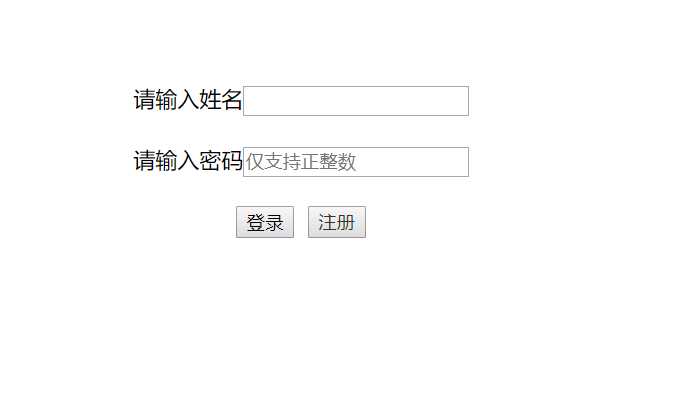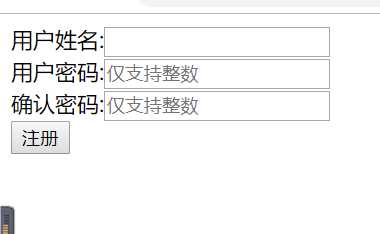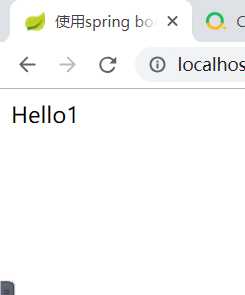安装使用Spring boot 写一个hello1
Posted luv-letter
tags:
篇首语:本文由小常识网(cha138.com)小编为大家整理,主要介绍了安装使用Spring boot 写一个hello1相关的知识,希望对你有一定的参考价值。
一、创建springboot 项目
二、进行代编写
1.连接数据库:application.properties里配置
spring.datasource.driverClassName=com.mysql.cj.jdbc.Driver spring.datasource.url=jdbc:mysql://localhost:3306/huoguo?useUnicode=true&characterEncoding=utf-8&useSSL=false&serverTimezone=UTC spring.datasource.username=root spring.datasource.password=123456 spring.jpa.showSql=true mybatis.type-aliases-package=com.xiaojungan.huoguo.entity mybatis.mapper-locations=mybatis/*.xml
2.用户实体 entity.User:
package com.xiaojungan.huoguo.entity; public class User private Integer id; private String name; private Integer password; private Integer canzhuo_id; public User() public User(Integer id, String name, Integer password,Integer canzhuo_id ) this.id = id; this.name = name; this.password = password; this.canzhuo_id = canzhuo_id ; public Integer getId() return id; public void setId(Integer id) this.id = id; public String getName() return name; public void setName(String name) this.name = name; public Integer getPassword() return password; public void setPassword(Integer password) this.password = password; public Integer getCanzhuo_id() return canzhuo_id; public void setCanzhuo_id(Integer canzhuo_id) this.canzhuo_id = canzhuo_id;
3.UserDao
package com.xiaojungan.huoguo.dao; import com.xiaojungan.huoguo.entity.User; import org.apache.ibatis.annotations.Param; public interface UserDao //登录判断 User login(User user); //注册 int addUser(User user); int adduser(@Param("name") String name, @Param("password") Integer password);
4.UserDaoImpl
package com.xiaojungan.huoguo.dao.impl; import com.xiaojungan.huoguo.dao.UserDao; import com.xiaojungan.huoguo.entity.User; public class UserDaoImpl implements UserDao @Override public User login(User user) return null; @Override public int addUser(User user) return 0; @Override public int adduser(String name, Integer password) return 0;
5.控制层 UserController.
package com.xiaojungan.huoguo.controller; import com.xiaojungan.huoguo.dao.impl.UserDaoImpl; import com.xiaojungan.huoguo.entity.User; import com.xiaojungan.huoguo.dao.UserDao; import com.xiaojungan.huoguo.service.UserService; import org.springframework.stereotype.Controller; import org.springframework.ui.Model; import org.springframework.web.bind.annotation.RequestMapping; import org.springframework.web.bind.annotation.ResponseBody; import javax.annotation.Resource; import javax.servlet.http.HttpServletRequest; import javax.servlet.http.HttpSession; import org.springframework.web.bind.annotation.*; @Controller public class UserController @Resource UserDao ad = new UserDaoImpl(); @RequestMapping("/login")//主页 public String index() return "login"; @RequestMapping("/goregister1")//去注册页面 public String goregister() return "register1"; @RequestMapping("/gologin")//登录获取用户信息存到seccion public String login(User user,HttpServletRequest request,Model model) User aa= ad.login(user); if (aa==null) return "public/false"; HttpSession session = request.getSession(); session.setAttribute("name",user.getName()); session.setAttribute("password",user.getPassword()); model.addAttribute("user",aa); return "user/index"; @RequestMapping("/index")//从其他页面操作后返回列表页面(重复登录) public String login(User user,Model model,HttpServletRequest request) HttpSession session = request.getSession(); user.setName((String) session.getAttribute("aname")); user.setPassword((Integer) session.getAttribute("apassword")); User aa = ad.login(user); model.addAttribute("user",aa); return "user/index"; @RequestMapping(value = "/register1") public String adduser(@RequestParam("name") String username, @RequestParam("password") Integer password, @RequestParam("password2") Integer password2) if (!password.equals(password2)) return "/user/wrong"; else int res = ad.adduser( username, password); if (res == 0) return "/user/wrong"; else return "/login";
6.application中配置
package com.xiaojungan.huoguo; import org.springframework.boot.SpringApplication; import org.mybatis.spring.annotation.MapperScan; import org.springframework.boot.autoconfigure.SpringBootApplication; @SpringBootApplication @MapperScan("com.xiaojungan.huoguo.dao") public class HuoguoApplication public static void main(String[] args) SpringApplication.run(HuoguoApplication.class, args);
7.UserMapper.xml 设置数据库语句的操作
<?xml version="1.0" encoding="UTF-8" ?>
<!DOCTYPE mapper PUBLIC "-//mybatis.org//DTD Mapper 3.0//EN" "http://mybatis.org/dtd/mybatis-3-mapper.dtd" >
<mapper namespace="com.xiaojungan.huoguo.dao.UserDao">
<select id="login" parameterType="com.xiaojungan.huoguo.entity.User" resultType="com.xiaojungan.huoguo.entity.User">
select name,password FROM user WHERE name = #name AND password = #password
</select>
<insert id="addUser" parameterType="com.xiaojungan.huoguo.entity.User">
INSERT INTO user(name,password) VALUES (#name,#password);
</insert>
<insert id="adduser">
INSERT INTO user (name,password) VALUES (#name,#password)
</insert>
</mapper>
8.登录页面 login.html
<!DOCTYPE html>
<html lang="en">
<head>
<meta charset="UTF-8">
<title>首页</title>
<link href="user/css/1.css" type="text/css" rel="stylesheet"/>
<style>
/*a标签去下划线和点击不变色,div内容居中*/
a
text-decoration: none;
color: #333333;
#idivtext-align: center;border-radius: 20px;
width: 300px;
height: 350px;
margin: auto;
position: absolute;
top: 0;
left: 0;
right: 0;
bottom: 0;
</style>
</head>
<body background="../../../../../../java%20%20work/huoguo/src/main/webapp/user/img/2.jpg">
<div id="idiv">
<form action="/gologin" method="post">
请输入姓名<input id="name" name="name" required="required"><br><br>
请输入密码<input id="password" name="password" type="password" placeholder="仅支持正整数" required="required"><br><br>
<input type="submit" value="登录"> <button>
<a href="/goregister1">注册</a></button>
</form>
</div>
</body>
</html>
9.注册页面 register1.html
<html lang="en">
<head>
<meta charset="UTF-8">
<title>注册</title>
</head>
<body>
<form action="/register1" method="post">
用户姓名:<input type="text" name="name" /></br>
用户密码:<input type="password" name="password" placeholder="仅支持整数" /></br>
确认密码:<input type="password" name="password2" placeholder="仅支持整数" /></br>
<input type="submit" value="注册">
</form>
</body>
</html>
10.index.html
<!DOCTYPE html>
<html lang="en">
<head>
<meta charset="UTF-8">
<title>使用spring boot写一个hello1</title>
</head>
<body>
Hello1
</body>
</html>
11运行结果:



以上是关于安装使用Spring boot 写一个hello1的主要内容,如果未能解决你的问题,请参考以下文章
Spring Boot + Docker + K8S 简单示例